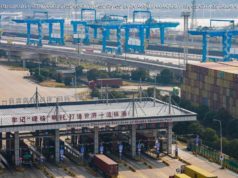Some in China Welcome MPAA Audit of Chinese Box Office
Hollywood getting tough on China ’s ticketing fraud and ordering an audit of the Chinese box office might anger some local players who have been reaping rewards from the country’s cinema boom. But the greater scrutiny will only benefit the Chinese film industry in the long run, some insiders in China say.
The Motion Picture Association of America ’s decision to audit Chinese box-office results for selected Hollywood titles doesn’ t just defend Hollywood’s interests, according to China analysts. If China aims to take over as the world’s leading film market and production center, then cleaning up the box office is a must.
The announcement of the audit late last month made headlines in the West, coming just ahead of the renegotiation of agreements between Hollywood and China, including Hollywood’s current 25% share of local gross box-office receipts for their imported titles.
But the news did not come as such a shock to many in China, where box-office irregularities have long been an issue of concern for local players. Some who have been unwillingly swept up in box-office fraud cheer Hollywood’s audit.
“It’s quite common these days for even Chinese companies to [speak] out for improvements in the box-office takings report system, ” said Chinese film producer Peter Tsi.
In China it was not unusual, for example, to buy tickets to one film but end up with tickets to another, a practice known as “box-office theft” in Chinese. According to a report in China’s Mtime, industry insiders speculate that as much as 10% of 2015’s total box office of $6.5 billion was “stolen.”
Chinese media regulators reportedly decided in a meeting in January 2016 that they needed to fix the problem of box-office theft.
The MPAA is now following suit.
“The MPAA audit was a reaction to a slew of news articles out around a year ago questioning the accuracy of the box-office figures released by the government, ” said Richard Huang, an analyst at Nomura.
The Chinese box office has enjoyed dramatic growth since 2003, rising from RMB 900 million ($133 million) to RMB 10 billion ($1.5 billion) in 2010, according to China’s Ent Group. After that, it took only three years for the figure to double to RMB 20 billion ($2.9 billion) . By 2015, China’s box office totaled RMB 44 billion ($6.5 billion) .
But the stunning growth came along with fraud. In March 2016, Beijing Max Screen, distributor of Chinese action blockbuster “Ip Man 3, ” was suspended from releasing films for one month for inflating box-office figures by more than $8.6 million. Last November, a new law against box-office fraud was approved. In March this year, more than 300 cinemas were punished for cheating on their numbers.
The significant slowdown in box-office growth in 2016 and 2017 partly reflect this government crackdown. Receipts in 2016 only saw a 3.7% rise to RMB 46 billion RMB ($6.8 billion) . In the first half of this year, box office totaled RMB 27 billion RMB ($3.9 billion) , which is up 11% year-on-year.
“The authorities have already cracked down on various schemes in inflating box-office figures, which is part of the reason why the box-office numbers took a dive in the second half of 2016, ” Huang said. “The [MPAA] audit is unlikely to have any major impact on the box-office numbers now.”
Despite the fact that China now has more than 45,000 screens, overtaking North America as world No. 1, and its market is the world’s No. 2, box-office fraud and weak domestic productions hinder the country’s ambition to become the global leader. Local films accounted for only 38.5% box-office revenue in the first half of this year; Hollywood titles pulled in almost all the rest, which makes the MPAA audit even more timely.
“It’s only fair for Hollywood, the films of which have accounted for an [increasingly] big portion of the China box office, to demand a reliable system, ” Tsi said, adding: “At the end of the day, it’s good for the whole industry.”






